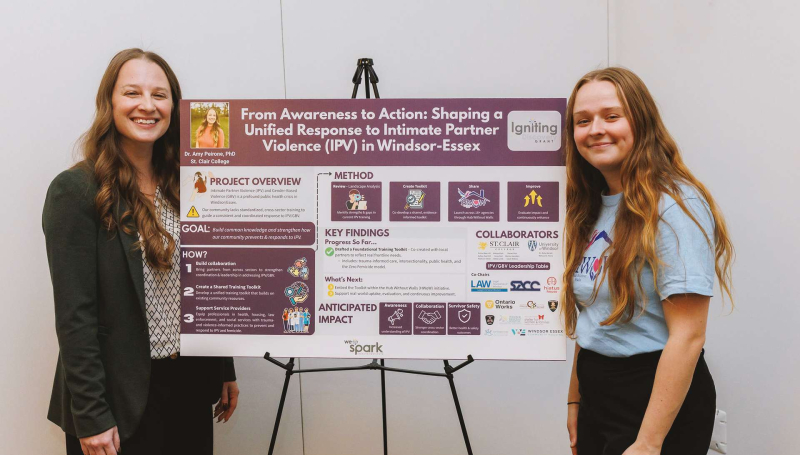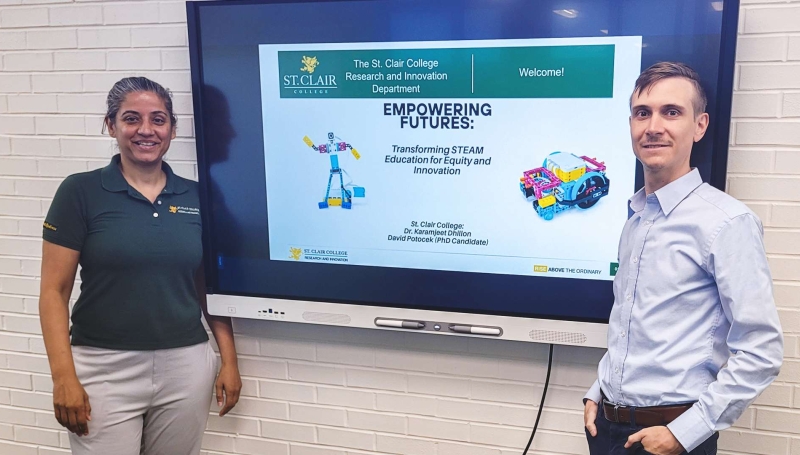Program Overview
The Honours Bachelor of Applied Arts in Social Justice & Legal Studies four year bachelor degree program combines the foundational knowledge and strengths of three pillars instrumental in bringing about socio-political development and positive change: poverty law, social justice, and community capacity building as achieved through education, advocacy, and activism. This multifaceted and interdisciplinary program, delivered primarily face to face with online support and some hybrid delivery, also includes curriculum providing a strong foundation of both the theoretical underpinnings as well as established practices in criminology, sociology, social work, philosophy, political science, Canadian law, community capacity building, and the study of under-represented and/or vulnerable populations.
Graduates will acquire strong problem-solving and analytical skills together with the interpersonal skills required of one seeking a leadership position in advocating for the reconstruction of societal constructs and practices on behalf of victimized and/or marginalized individuals and groups. Students will learn to critically analyze, formulate and develop strategies to address situations brought about through the withholding of full and equitable distribution of economic advantage, educational opportunity, sociopolitical power and/or physical resources from those without a political and/or social voice.
The program will also include practical components, such as case studies inviting creative programming, mock mediations bringing about affordable resolutions, simulations reflective of addressing social injustice, a capstone project geared toward finding strategies to address real world problems, and an internship with a social justice, community, not-for-profit, governmental, or legal organization.
The program curriculum will stimulate the development of an inquiring mind, increase sensitivity for inequalities, and encourage independent judgment and critical self-awareness. Graduates will not only be equipped to assist individuals, groups, organizations and coalitions to navigate the social-legal system in pursuit of democracy, participation and inclusiveness in the design and realization of equitable laws, but also be well prepared to pursue graduate studies in social justice and related fields.
Program Highlights
Students must complete a mandatory 14-week Work Integrated Learning (WIL) placement to qualify for graduation. This work term takes place between semesters 6 and 7 and serves as an opportunity for students to build upon previous experiential and theoretical knowledge and apply new found knowledge and skills to major projects in their last two semesters of study.
Career Opportunities
Graduates of the program will be able to gain employment in various roles focused on advocacy, public service, law enforcement, labour relations and/or in the creation and development of programs and services for community organizations, not-for-profit groups, and/or government departments. Specific careers could include community and social service workers, community and/or political liaison/ombudspersons, mediators, labour representatives, court officials, probation and parole officers, police officers, correctional service officers, by-law enforcement officials and other regulatory roles.
Statement of Consent
St. Clair College has been granted a renewed consent by the Ministry of Colleges, Universities, Research Excellence and Security to offer this applied degree for a five-year term starting April 8, 2025. The college shall ensure that all students admitted to the above-named program during the period of consent will have the opportunity to complete the program within a reasonable time frame.





